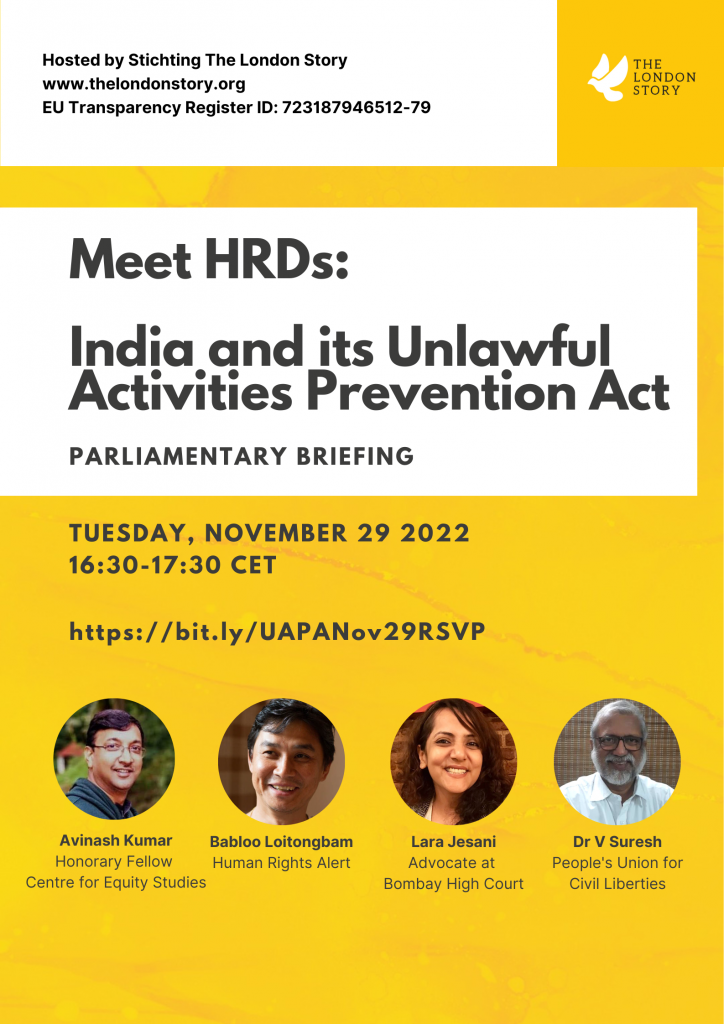Additionally, the UAPA reverses the burden of proof and requires the accused to prove they are innocent. However, evidence is not disclosed to the accused, and evidence has been fabricated. “The police arrested human rights defender Anand Teltumbde and others based on certain documents, which were later on found to be tampered. Evidence was planted in the devices of the accused,” said Lara Jesani.
Sharing findings from the first extensive report on the UAPA, conducted by the People’s Union for Civil Liberties, the briefing highlighted that only 2.8% of people arrested in UAPA cases since 2009 have been convicted. However, their acquittals come only after the accused has spent several years in pre-trial custody without bail. In one case, an auto rickshaw driver from Tripura was falsely arrested under the UAPA. After spending four years in pre-trial custody, the judge discharged him, stating: “I fail to understand why this accused was arrested in the first place at all.” Similarly, when the Delhi High Court acquitted two young female students charged with conspiracy when they protested against the Citizenship Amendment Act, it stated: “We are constrained to express, that it seems, that in its anxiety to suppress dissent, in the mind of the state, the line between the constitutionally guaranteed right to protest and terrorist activity seems to be getting somewhat blurred. If this mindset gains traction, it would be a sad day for democracy.”
India recently received praise for its leadership of the UN Security Council’s Counter-Terrorism Committee. In October, it hosted the “Delhi Declaration”, which calls for “urgent action to prevent and counter terrorism in all its forms and manifestations”. This praise is a worrying development, as the UAPA as India’s primary counterterrorism legislation has been widely condemned. 80% of all UAPA cases since 2005 have been registered and investigated since Modi’s BJP took power. “You cannot become a bigger terrorizing factor to the population, in the name of fighting terrorism,” Babloo Loitongbam highlighted.
In 2020, several UN Special Rapporteurs criticised that the UAPA does not comply with set international standards for counter-terrorism legislation. Earlier this year, Members of the European Parliament twice expressed serious concern about the UAPA in open letters to Prime Minister Modi, and demanded its repeal. Several countries condemned the UAPA at the recent peer-review of UN member states’ human rights record at the United Nations. Among the countries expressing concern were several EU member states, with Estonia calling to “carefully review” the UAPA “to ensure freedom of expression, assembly and association and the protection of civil society organisations and human rights defenders”, and Belgium calling to “repeal or revise” the UAPA “to ensure the right to freedom of expression in conformity with the International Covenant on Civil and Political Rights”.
The briefing appreciated such international statements, and called for similar actions.



